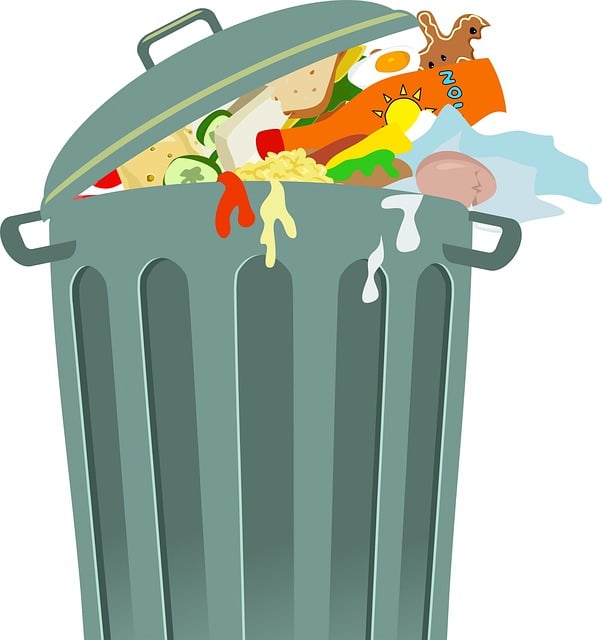Food Waste Week - Planning is Key
March 20-24 is Food Waste Week here at the Small Steps to Healthy Habits blog! Learn ways to use up the good food you buy so that you don't waste it (and you don't throw money away).
Food Waste Week - Planning is Key
by Katie Cullum

Our trash day is Thursday, so we get the trash together on Wednesday night. That means the refrigerator gets cleaned out on Wednesday night also. How much food do we throw out? Some weeks, it’s not much. But other times, it’s downright embarrassing! This week, I had to throw out an avocado and a bell pepper! That was throwing away $2.06 since the bell pepper was $1.48 and the avocado was $0.68!
Do you throw out food? How many times have you bought a bagged or boxed salad mix....and threw most of it away? If you throw away a third of your food, you're not alone. About 133 billion pounds or $161 billion worth of food is wasted each year from the farm to your home. There are many reasons why we waste food at home – from schedule changes to pickiness to not planning. It’s not just a matter of your food dollars wasted – throwing your money down the trash. It also affects the environment. Organic waste, mostly food, is the second biggest component of landfills. Not to mention the valuable resources of water, energy, and land.
What can YOU do about food waste? One easy way to participate in “No Waste Week” March 20-24, 2023. Read on to learn how you can help with food waste in your home.
So how can consumers waste less food? One of the best ways to avoid food waste AND to save money, is to PLAN. Plan your meals for the week. Plan how to use the extra ingredients, especially produce, that you buy. Make a shopping list, checking your pantry, refrigerator and freezer to see what you already have and what might need to be used up. And then stick to the list at the grocery store while shopping or using an app!
- Plan meals for the week. If you need help thinking of meals, just jot down a few family favorites. For more ideas on meal planning, check out a previous post.
- Don't forget to plan a leftovers night! Make a habit of using up whatever you have one night a week. Everyone may eat something different but that's okay!
- Go through your fridge, freezer, and pantry to see what may need to be eaten. Half a pepper? Small zucchini? Green onions? What can you make with those? Omelet? Pasta dish? Vegetable dish?
- Make your grocery list. Only purchase what you can eat that week. If you find a great deal on bagged salad, can you eat it all? Prep a few lunches with it so you can finish the bag!
- Stick to your list, even if you're shopping online. It's easy to add some of the things you've bought before when prompted, but ask yourself if it's really needed.
- Convenience foods are very convenient, but the extra packaging adds to the cost and to the waste. Choose a bag of small oranges instead of purchasing small cups of oranges. Bonus: the orange peels can be composted! Or choose plain yogurt in a large container instead of pouches or small containers of yogurt. Dish out yogurt with fruit and maybe a little honey. Everyone can pick a different fruit to use...and you can use that fruit for lunches or snacks during the week also!
Planning is key to wasting less food. Make your plan today!
References:
https://www.fda.gov/food/consumers/food-loss-and-waste